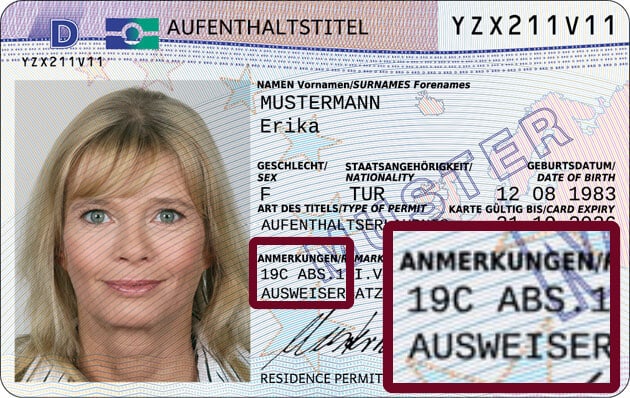Naturalization
- Test your requirements -
Entitlement check 2024
Your naturalization check for 2024 - do you meet the requirements?
Can I become a naturalized citizen in Germany?
When it comes to German naturalization, it's not easy to keep track of everything. There is a whole range of requirements stipulated by the German Citizenship Act (StAG). A new naturalization law, which has been in force since the end of June 2024, has also changed many of these requirements. Assessing the chances of success of an application for naturalization is therefore often fraught with uncertainty. Our naturalization check helps you to overcome these uncertainties. With clear, simple questions, we go through the legal requirements for naturalization with you step by step.
Naturalization Check
Basics of the check
Our check is based on the applicable laws from the citizenship law, especially § 10 StAG. However, no test, no matter how well designed, can cover all eventualities. Therefore, you should note that this check is only a first indication and not a final legal assessment. Should you require such a well-founded legal assessment of your case, please do not hesitate to contact us! The same applies if you still have detailed questions that go beyond the scope of this check.
Duration of stay in Germany
The check begins with the question of how long you have been living in Germany. Only legal residence counts, i.e. it depends on how long you have been in possession of a residence permit or similar title. You must also have lived in Germany without any significant interruptions. Stays abroad of up to six months are harmless. In principle, the law requires a period of residence of five years. If you are able to support yourself independently, have German language skills at level C1 and can provide evidence of special integration achievements, this minimum period of residence can be extended to up to three years can be reduced. Special integration achievements include, for example, particularly good performance in work, training or school as well as voluntary work. You can find out more about the duration of residence here.
Current residence permit
Next, we ask about the residence title you currently hold. This question is important because only people with certain residence titles can be naturalized. Anyone who holds an unlimited residence title, i.e. a settlement permit or a permit for permanent residence in the EU, can be naturalized. In the case of temporary residence titles, i.e. those that have to be renewed again and again, a distinction is made according to whether the title is intended to guarantee more than just temporary residence. You can find out more about residence titles for naturalization here.
You can find which paragraph your right of residence is based on on the front of your residence title card under "Remarks".

German educational qualifications
We ask about any schooling or vocational training in Germany because this can generally serve as proof of German language skills and knowledge of the legal and social system. Simply enter the highest qualification you have obtained in Germany.
If you do not have any of the specified school or professional qualifications, you must be able to present a language certificate for German at level B1 or higher and have passed the naturalization test in order to be naturalized.
State aid
If you want to be naturalized in Germany, you must be able to finance your living independently. That is why we ask whether you are currently receiving state assistance. It is important to note that only the receipt of benefits from the Social Code II (SGB II) and from the Social Code XII (SGB XII) is harmful. This includes, for example, unemployment benefit II, social assistance and basic benefits in the event of reduced earning capacity or old age. Other benefits that are not regulated in either SGB II or SGB XII, such as unemployment benefit I, child benefit, parental allowance or BAföG, do not prevent a claim for naturalization. You can find more information on the topic of subsistence here.
Family status and children
We ask about your marital status - single, married, divorced or widowed - and your children for several reasons. If you have a spouse or children who do not yet have German citizenship, for example, you could think about co-naturalization. In this case, these family members can naturalize together with you and under easier conditions. It is also important to know whether you have a spouse or children, as their livelihood must also be secured.
Salary and pension contributions
We also ask for your current monthly salary after deduction of taxes and contributions. This provides a good estimate of whether your livelihood is secure.
Since your livelihood should also be independently secured in old age, we also ask how many years you have already paid contributions into the German pension fund. As an alternative to this statutory pension, however, a private pension plan can also serve as proof.
Here you can learn more about the topic of livelihood.
Valid national passport
The last thing we ask is whether you are in possession of a valid national passport. If you wish to be naturalized, your identity and nationality must be clarified. As a rule, this clarification takes place with a valid passport. However, in justified individual cases, other documents may also be sufficient if it is impossible or unreasonable to obtain a passport. We have summarized the exact procedure in such cases for you here.
How our lawyers can help you
You have done the naturalization check and found out that you have a good chance of naturalization - but the procedure you have to go through to apply for naturalization is too complicated for you? Do you want to make sure that your application is complete and that no important documents are missing? Or did your naturalization check reveal that you do not yet meet all the requirements and you would now like to know what you need to do?
No matter what your concern is - the lawyers from RT & Partner are there for you! We will be happy to advise you in detail on any questions you may have. We will make sure that nothing stands in the way of you obtaining German citizenship. With our many years of experience, we can identify any obstacles at an early stage and find a solution before they become a problem. When the time comes, we will prepare your application, check that all documents are complete and handle all communication with the authorities. In this way, we ensure that your application has the best possible chance of success. To give you planning certainty as quickly as possible, our lawyers will make every effort to ensure that the authorities process your application without excessive delays. If necessary, we will file an action for failure to act on your behalf.
Applying to the authorities is never easy - especially in Germany. Rarely is an application more important than that for naturalization and obtaining a new citizenship. That's why we recommend it: Get professional support. The lawyers at RT & Partner are there for you.
